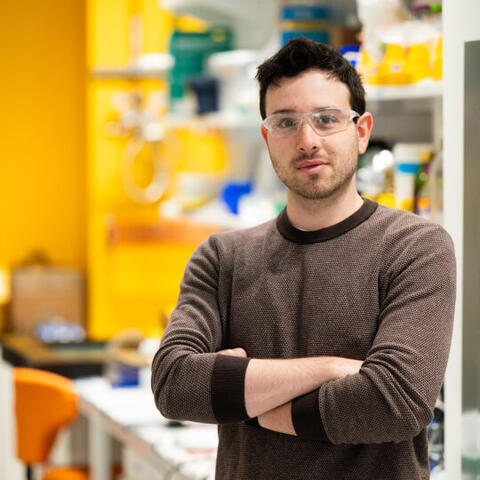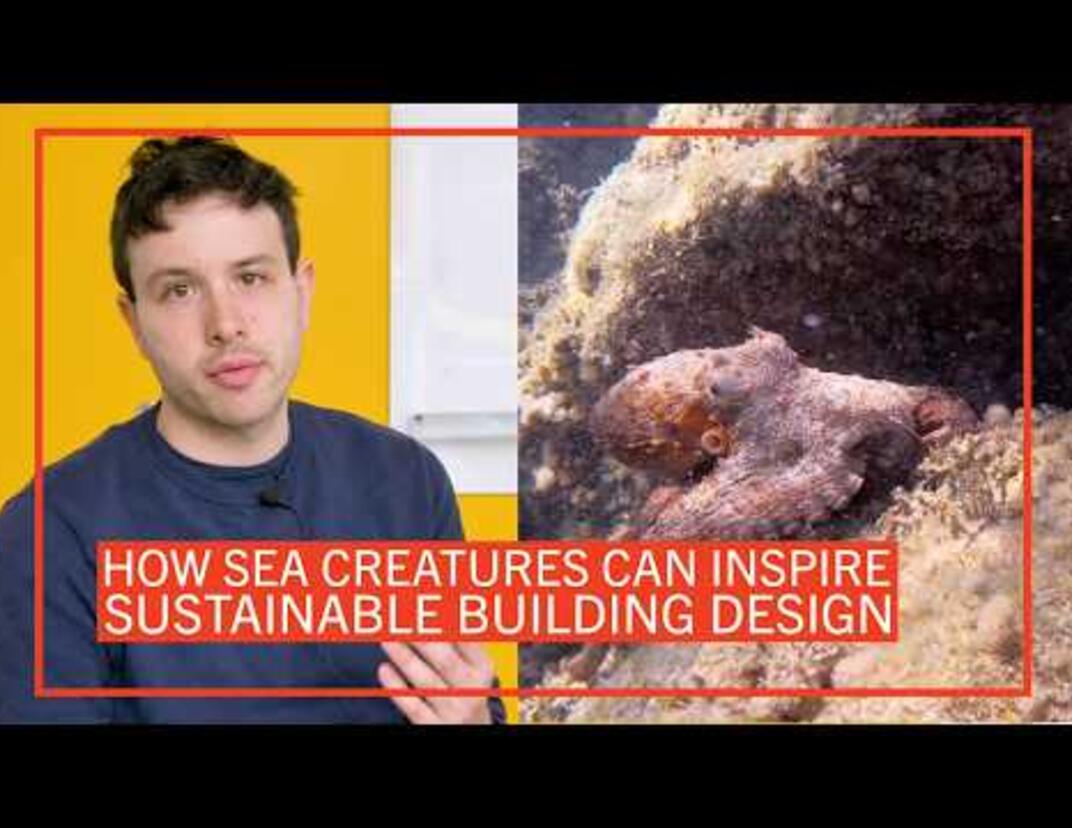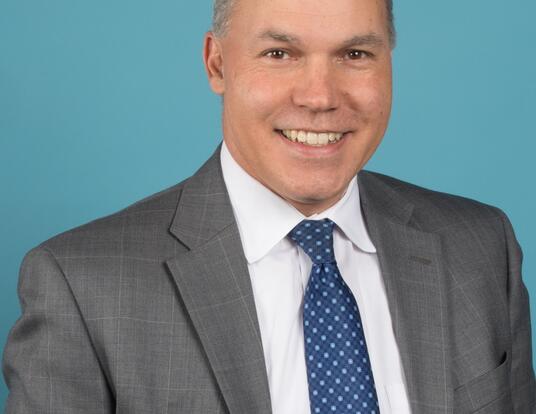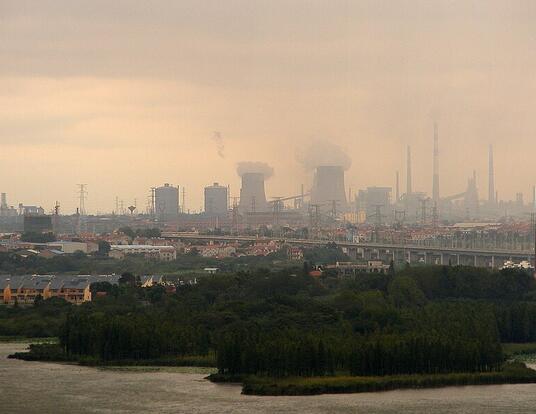A Theory of (Climate) Justice
Britta Clark draws on the insights of philosophy to navigate the ethics of efforts to mitigate global warming
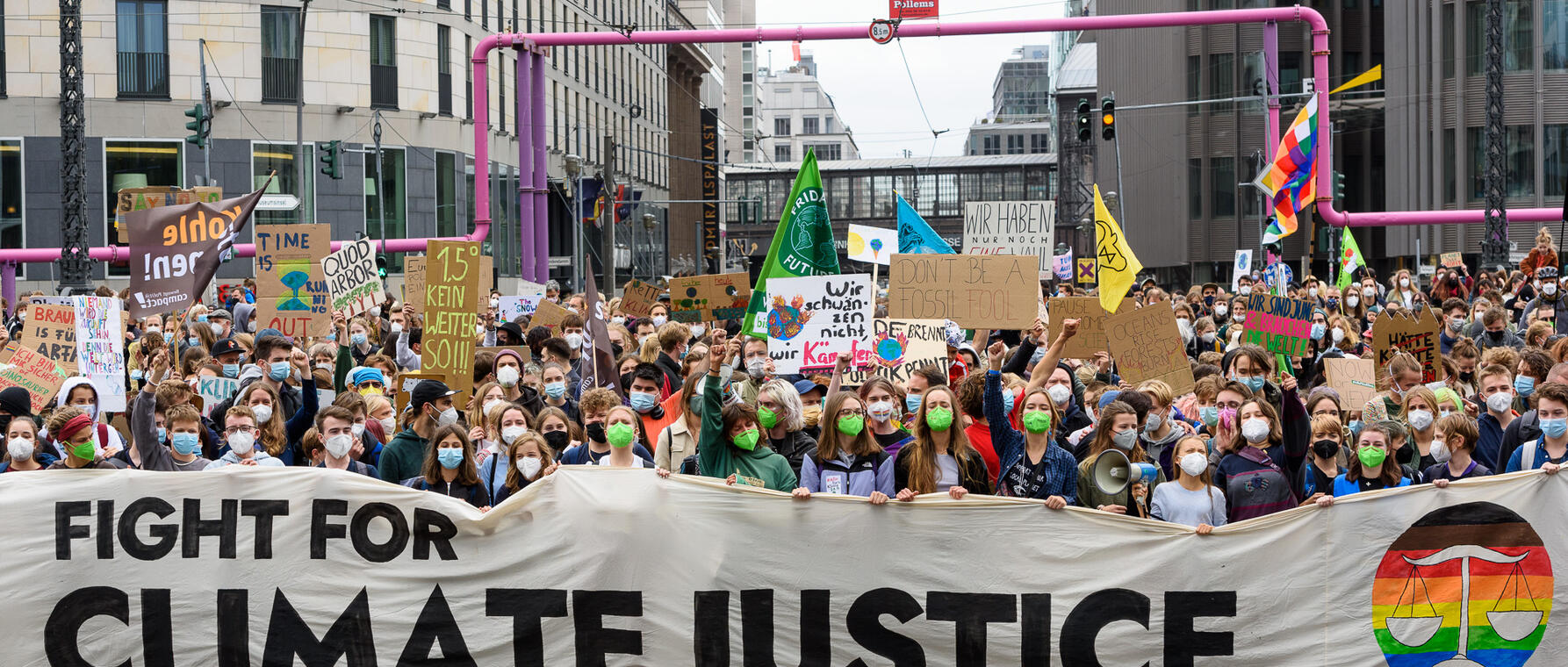
Research at Risk: Since World War II, universities have worked with the federal government to create an innovation ecosystem that has yielded life-changing progress. Now much of that work may be halted as funding is withdrawn. Find out more about the threats to medical, engineering, and scientific research, as well as how Harvard is fighting to preserve this work—and the University's core values.
The summer of 2024 in the Northern Hemisphere continues to break records for extreme heat. Several US cities have experienced new record-high temperatures this year, and according to a report by the European Union’s Copernicus Programme, the June just past was the hottest ever recorded on Earth, narrowly beating a global temperature record set in June 2023. But while climate change poses challenges to all of humanity, the crisis affects different populations unequally, depending on location, infrastructure, and access to housing and air conditioning. New technologies could help mitigate the effects of climate change, though their full impact is still being tested.
In these circumstances, what would it mean to work toward justice and equity in responding to the climate crisis? And, as researchers develop the technologies of the future, how should this concern for justice impact humanity’s actions in the present?
As a PhD candidate in philosophy at the Harvard Kenneth C. Griffin Graduate School of Arts and Sciences (GSAS), Britta Clark applies her discipline’s methods to reach a new understanding of the ethical and political issues raised by the climate crisis—and humanity’s response to it. Addressing the potential role of technologies like carbon removal and solar geoengineering, Clark expands existing notions of success in mitigating the effects of climate change to include considerations of justice and equity.
Helping a Friend
Carbon dioxide removal technologies pull carbon from the ambient air and then sequester it, typically burying the element deep underground. Solar geoengineering envisions shooting aerosols, usually sulfate aerosols, into the stratosphere to temporarily abate climate change impacts by reflecting some of the sun’s rays back into space and away from Earth. To illustrate the ethical dilemmas that accompany the deployment of these new technologies, Clark offers an analogy.
“Imagine you have a big task to perform,” she says. “Say, you have to shovel your driveway in the winter. And you know that maybe, later in the afternoon, you'll have this set of technologies that will maybe make the challenge of shoveling your driveway a little bit easier. You’re fairly certain but not totally certain. There’s a chance that the new technology might make things more difficult, adding more snow to your driveway. What should you do with that information?”
Clark argues that mainstream answers to that question––in terms of the climate response––take a narrow view of success. Specifically, when policymakers focus on economic metrics, they ignore other possibilities for a fair climate future. Continuing the analogy of snow removal as climate change mitigation, Clark explains, “The standard economic models will tell you, ‘Well, it's going to be easier to shovel your driveway later, with the new technology, so you should slow down.’” In other words, Clark says, economists have calculated that it is financially optimal to wait for these technologies to help us meet climate goals––and, according to this view, to move more slowly in current climate preservation efforts, like reducing carbon emissions.
We know that climate change will impact already disadvantaged people the most, but in mainstream discussions, there’s been less focus on the relationship between fairness and . . . emerging [climate] technologies.
—Britta Clark
“But that's not the only response you could have,” Clark continues. “You might also say, ‘It's going be easier to shovel my driveway later, so I should get started now. And then later, I can go help a friend.’” In terms of climate change, well-resourced nations could potentially use their wealth to speed up their own response and then provide assistance to other countries. Clark says that “helping a friend” is an option that should not be ignored as we consider how to use climate technologies––and that economic models limit our thinking by closing off certain possibilities that may actually deserve careful consideration.
“We know that climate change will impact already disadvantaged people the most,” she says, “but in mainstream discussions, there’s been less focus on the relationship between fairness and these emerging technologies.”
Clark argues that a view informed by moral and political philosophy also helps us identify errors in common ways of thinking about new technologies. “Although most proponents of carbon removal are quick to say that the technology is not a substitute for reducing greenhouse gas emissions,” Clark explains, “in practice, economic models do substitute carbon removal for emissions reductions in all those circumstances where doing so is supposedly cheaper. In other words, the models tell us we can shovel the driveway a bit slower.” But Clark argues that we should also consider the possibility that humanity should raise its standards in the climate change response. “Just because there’s the potential that a technology could enable us to meet our goals at lower costs,” she says, “doesn't mean that that is the only possible role of the technology. We also could raise the ambitiousness of our climate goals.”
By approaching these issues from the perspective of philosophy, Clark hopes to “open up our thinking beyond what the economic models assume” and to consider more broadly the ways we could understand the role of new technologies. To do this, Clark critically analyzes climate debates––identifying their underlying assumptions––and then formulates and tests out principles of what justice and morality could look like in the current situation. She also specifically considers the issue of intergenerational justice or what moral responsibilities we have toward Earth’s future generations.
Clark’s project requires extensive knowledge from outside her main field of philosophy. As her advisor, Associate Professor of Philosophy Lucas Stanczyk, explains, “Thinking about the ethical dimensions of climate change is difficult because it requires plural subject-matter expertise, hard-won philosophical insight, and a duly cynical orientation towards the politics. Britta Clark’s research brings all of these virtues to bear on urgent ethical questions at the intersection of science, technology, and climate change.”
Harvard via the Green Mountains and New Zealand
Britta Clark’s deep interest in the environment dates back to her childhood. Growing up in a town surrounded by Vermont’s Green Mountain National Forest led her to value time spent outdoors in natural environments––and, eventually, to become invested in environmental education and protection efforts. “I’m still pretty involved in a small nature center there, the Blueberry Hill Outdoor Center,” says Clark, “and with organizing trail workdays, events, and doing some conservation work.”
As an undergraduate at Bates College, Clark became drawn to the interdisciplinary humanities field of environmental studies, which allowed her to pursue interests in the philosophical, historical, and cultural issues associated with environmentalism. This experience led her to then pursue a master’s degree in philosophy as a Fulbright Fellow at the University of Otago in New Zealand, where she focused on analyzing relationships between humans and nature.

Studying overseas broadened Clark’s perspective because of the high value given to Indigenous traditional knowledge and practices. “If you told someone in the US to think of rivers as being people, for example, they might say that sounds insane––but people are much more willing to entertain ideas like that in New Zealand, just because they’re more accustomed and exposed to them,” Clark says.
Over time, Clark realized climate change was a very human problem and wanted to devote more of her intellectual energy to thinking about policy debates, leading her to her eventual PhD research area––and to Harvard’s Department of Philosophy. “In general, I was very impressed by both the philosophical rigor and the willingness to speak to policy-related issues in Harvard’s department. It seemed like a group of people who wanted to do really good philosophical work on relevant, current issues,” she says.
Needful Questions
Following her graduation in fall 2024, Clark plans to stay at the University as a postdoctoral researcher in the Harvard Solar Geoengineering Research Program, a group of mostly scientists and engineers studying climate mitigation technologies. She looks forward to learning from their experiences––and to giving a voice to new ways of thinking that flow from an ethical, philosophical, and humanities-based perspective.
Beyond Harvard, Clark hopes her work will inspire new ways of thinking about our response to climate change, allowing policymakers, scientists, and citizens to imagine a wider range of possible futures. Professor of Philosophy Gina Schouten, a member of Clark’s dissertation advising committee, says this contribution to the discussion on climate change is badly needed.
[Britta’s] work is theoretically innovative but primarily oriented toward practical, needful questions such as, ‘Which technological strategies should we pursue, how, and why?’
—Professor Gina Schouten
“Britta’s dissertation project develops and defends an actionable normative theory that can guide decision-makers with respect to climate policy in our unjust circumstances,” Schouten says. “Her work is theoretically innovative but primarily oriented toward practical, needful questions such as, ‘Which technological strategies should we pursue, how, and why?’”
Clark’s hope is that her work can bring increased clarity to these debates and open up possibilities foreclosed by standard ways of thinking about new technologies. “You often hear people say, ‘We know what we need to do about climate change––we just need the political will to do it,’” she says. “But once we think about all the different ways that we could transition away from fossil fuels, and which technologies we could use to make that transition, it becomes clear that there are tons of remaining ethical questions in this area.”
Get the Latest Updates
Join Our Newsletter
Subscribe to Colloquy Podcast
Simplecast


